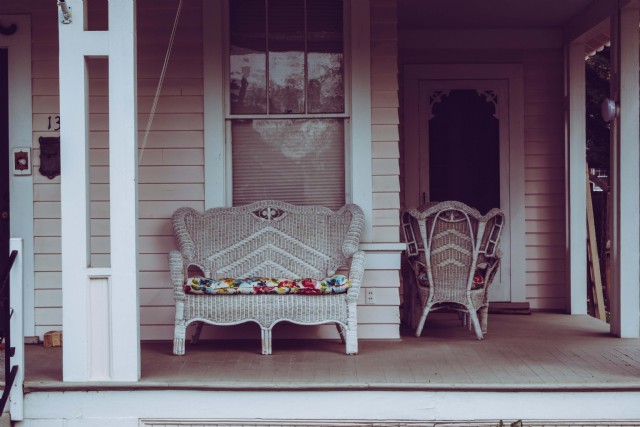At The Carrybrowns Poem by Jenny Kalahar
At The Carrybrowns
I knew the Carrybrowns
in the days when I was little
and wore flowered ankle socks
red canvas shoes with white laces gone dingy
and dresses.
And then later, when I dressed in pants like my big brothers did
to follow them up good climbing trees
or to sit straddling a creaking, fraying rope
atop our comfortable tire swing,
its rubber odor imprinting on my mind.
When I step into a tire shop
the things I did on sunny days
and even when it rained
come back to me like a rediscovered letter
from when I knew the Carrybrowns
The Carrybrowns were neat as pins, my mother said,
with a yard like a car-lot showroom,
their plants in copper bowls as big as bathtubs gone round.
The Carrybrowns were churchers,
scrubbed with soap behind their ears from birth,
never a stain on their white shirts during services
or after
when they all filed into the Families Eat Here
at the business end of Maple
I remember the Carrybrowns.
They lived quietly
played checkers and chess in near-silence
on their open, white-painted porch
where they could easily gaze between game moves
at the violet and cardinal flowers in their giant copper kettles,
or at the browngreen salamanders who napped
beneath a bronze frog planter
that took care of the mailbox
even when it rained
I remember that when I wanted peace and calm
I would stroll a block from home to sit on their sidewalk,
and the Carrybrowns wouldn't shoo me off
and all was cool and fine at that end of things,
at that part of town
where never an argument was found
over at the Carrybrowns
But then in about nineteen eighty
Mrs. Carrybrown's father passed
and they brought her mother down from way upstate—
so far north that she had a funny accent—
and they, Mr. and Mrs. Carrybrown,
put Granny Smith in a tiny log cabin of a place
at the cleared back acre of their property
I remember the way Granny would shake and swat
her rag rugs on the steps of that cabin
each thump a complaint to the wind about its dust,
or a protest that the Carrybrowns' muddy-pawed schnauzer
had snuck inside to sit next to the refrigerator that hummed
and was too hot on its backside to be safe
I remember that once Granny had gotten comfortable
she started to make a change.
Soon the Carrybrown kids weren't interested in chess and checkers,
in white church shirts with nary a stain on them
and in talking quietly, mostly only when asked a question.
We kids listened to Granny's rock 'n roll records
and ate brownies with extra caramel syrup all through them with Elvis,
vanilla ice cream with red strawberries out of a frozen can with Jerry Lee Lewis,
and Granny's pale green bread-n-butter pickles
and grilled cheese so gooey it was halfway to sin with Little Richard wailing on
Within a month there wasn't a quiet end of the street
as we danced in the back yard after school at the Carrybrowns.
And it turned out that Mr. and Mrs. Carrybrown were a lot happier
being free of their uptightness
the uptightness that Mr. Carrybrown had been raised on
and that Mrs. Carrybrown—
back when she was Miss Smith—
had learned to get used to if she was going to date and marry her man
I remember the freshness of the songs on those old 45 records.
I can see them drop from their held-aloft stack.
I can see the arm rotate and fall into black grooves
and we all would go crazy
eating everything, dancing away the afternoon
forgetting things like chores and homework
and fights at school
and how our parents were Republican and would just about die
if they knew we were swinging each other around and around
even when it rained in the Carrybrowns' back yard.
Even when it rained

This poem has not been translated into any other language yet.
I would like to translate this poem